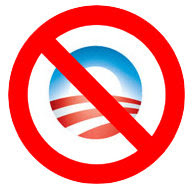by: John Tamny is editor of RealClearMarkets, a senior economist with H.C. Wainwright Economics and a senior economic adviser to Toreador Research and Trading. He writes a weekly column for Forbes.
The U.S. Constitution's 10th Amendment is arguably the most important of all the amendments in the brilliant document that helped shape the United States. The 10th amendment made plain that "the powers not delegated to the United States by the Constitution, nor prohibited by it to the States, are reserved to the States respectively, or to the people."
What the 10th amendment tells us is that the powers of the federal government are quite limited, and that any powers not enumerated to Washington in the first nine amendments automatically revert to the states. This was the founders' way of keeping the federal government small so that individuals could choose the kind of government they wanted based on the state in which they chose to live.
Of course, with politicians on both sides of the aisle driven by incentives that have told them to ignore the 10th amendment, Americans suffer under laws and bureaucracies created in Washington that would not exist had politicians adhered to the Constitution's limiting ways. Simply put, nothing in the Constitution allows for the existence of the Departments of Education, Commerce and Energy (to name a few), government-sponsored entities such as Fannie Mae ( FNM - news - people ) and Freddie Mac ( FRE - news - people ), or ineffective bureaucracies such as the SEC and the FDA.
Throughout this decade, under Presidents Bush and Obama, economic "stimulus" packages have similarly been foisted on the U.S. economy by a federal government possessing nothing not already taxed or borrowed from the private sector. Nothing in the Constitution mentions "economic growth" as one of the federal government's powers--the founders knew that with freedom came economic growth--but politicians being politicians, they've never let economic crises of their own making go to waste--Constitution be damned.
Where simple spending is considered, Washington's disdain for the Constitution becomes even more unsettling. As the Heritage Foundation's Brian Riedl recently noted in the Washington Times, federal spending includes $2.6 million for the training of "Chinese prostitutes to drink more responsibly on the job," $3.9 million for the SEC to rearrange "desks and offices at its Washington headquarters" and nearly $1 million for the shipping of "two 19-cent washers from South Carolina to Texas," along with the improper use of government credit cards for the purchase of goods including "lingerie, iPods, XBoxes, jewelry, Internet dating services and Hawaiian vacations."
Clearly none of this wasteful spending was needed for the federal government to handle the very limited powers enumerated to it by the Constitution, and that was the whole point of the 10th amendment. Washington's powers would be limited so that citizens could choose their governments locally while keeping an eye on their activities.
That there were no federal income taxes until early in the 20th century was a certain offshoot of the meaning of the 10th amendment. The Founders' knew well that governments only grow, so in explicitly limiting the role of the federal government in our lives, citizens could wisely choose the government regime (and the level of taxation) they would live under. If lots of services and powerful politicians floated their boats, they could live in New York, while if they wanted to live in a state that spent and taxed much less, they could, for instance, move to Texas.
With government activities and spending based locally, Americans were essentially free to choose how much or how little power they would hand over. The federal tax burden was meant to be the smallest of all, precisely because the Constitution made plain that Washington's powers would once again be limited to what the first nine amendments allowed.
At present, the vision of the founders has been turned on its head. Rather than being able to choose the government of their liking on a state-by-state or city-by-city basis, Americans are captives of a federal government that has blatantly ignored the Constitution on the way to ascribing itself myriad powers and a taxing authority meant to pay for activities that, at best, should be left to cities and states.
This should be remembered the next time there's a discussion of federal taxation in the U.S. Indeed, while the freedom-loving may long for a simplified federal flat tax, in ascribing the power of taxation to the federal government to pay for all sorts of unconstitutional programs, we are blindly handing Washington powers never intended for it.
The better path at this point would be for all of us to demand more from our elected leadership. Specifically, we should demand that they cease talking of reduced federal spending and taxes in favor of a real discussion of the proper role of the federal government itself. Politicians need to be reminded that the Constitution is real, and that as opposed to reducing various programs that are unconstitutional, those programs should be abolished.
So while the level of federal taxation is important when it comes to economic growth, it to some degree misses the point. Federal spending is an equally huge burden on the economy for Washington taxing and borrowing from the private sector in order to fund initiatives that a proper reading of the Constitution would not allow.
In short, if we truly desire a greatly reduced tax burden, it's well past time we force politicians to consider the constitutionality of the various spending programs and bureaucracies that burden us. Only then will we see power returned to the cities and states such that levels of taxation actually decline.
Monday, November 30, 2009
Subscribe to:
Posts (Atom)
